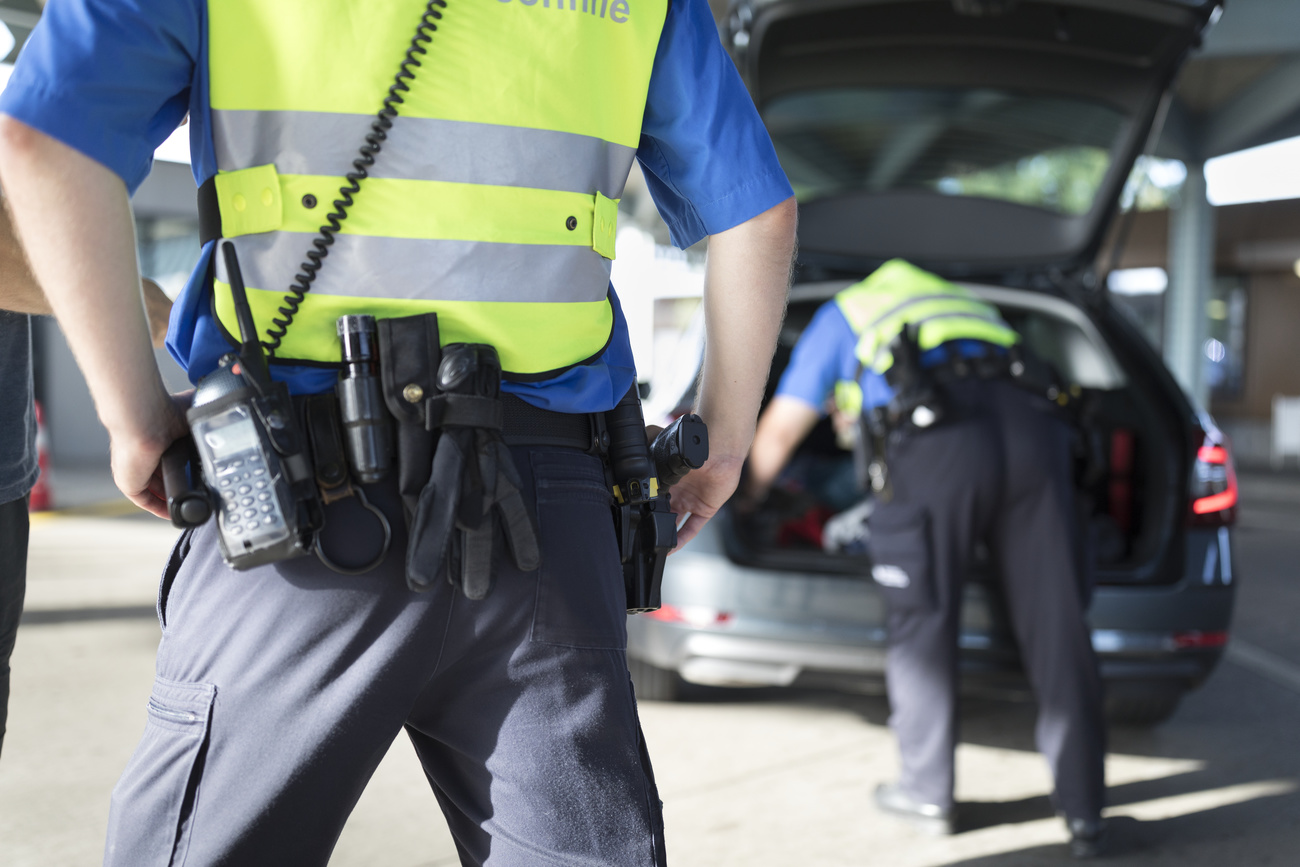
Italian busted smuggling alcohol in milk and shampoo bottles into Switzerland

An Italian motorhome driver has been caught trying to smuggle 135 litres of pure alcohol disguised in various bottles into Switzerland.
The Federal Office for Customs and Border Security (FOCBS) explained on Wednesday how the man tried to enter Switzerland through the La Drossa customs crossing into canton Graubünden in eastern Switzerland on May 21.
During an inspection, customs officers found dozens of bottles of what appeared to be water, milk, shampoo and schnapps inside the car. However, the bottles actually contained ethanol: pure alcohol.
+ Swiss customs seized fewer drugs and more meat in 2023
The driver was fined a four-figure sum, which he paid on the spot. As he did not want to pay duty on the alcohol, he was sent back to Italy with the goods.
The duty on alcoholic beverages such as ethanol is CHF15 ($17) per litre, FOCBS confirmed to the Swiss News Agency Keystone-SDA, with an exemption limit of one litre excluded.
The smuggler had hoped to save around CHF2,000 in duties. In addition, he would have had to pay VAT on goods worth CHF300 or more.
Ethanol is used as a legal additive for alcoholic drinks. Pure alcohol is also used as a solvent and disinfectant, for medical or cosmetic purposes, and as a fuel.
Adapted from German by DeepL/kp
This news story has been written and carefully fact-checked by an external editorial team. At SWI swissinfo.ch we select the most relevant news for an international audience and use automatic translation tools such as DeepL to translate it into English. Providing you with automatically translated news gives us the time to write more in-depth articles.
If you want to know more about how we work, have a look here, and if you have feedback on this news story please write to english@swissinfo.ch.

In compliance with the JTI standards
More: SWI swissinfo.ch certified by the Journalism Trust Initiative

























You can find an overview of ongoing debates with our journalists here . Please join us!
If you want to start a conversation about a topic raised in this article or want to report factual errors, email us at english@swissinfo.ch.